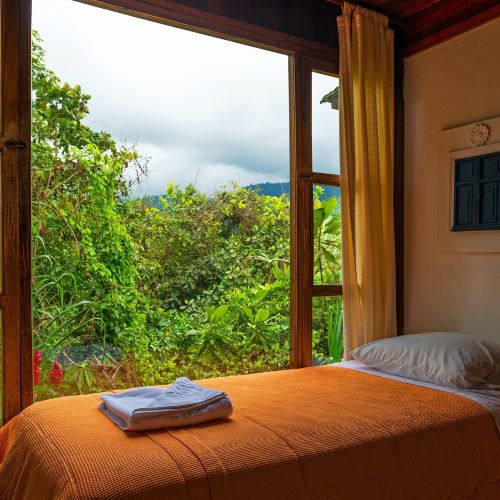28 July 2025
 The demand for ‘greener’ bed and breakfast (B&B) accommodation is gaining traction worldwide, but operators should heed cultural differences when marketing their sustainable facilities, according to a new international study.
The demand for ‘greener’ bed and breakfast (B&B) accommodation is gaining traction worldwide, but operators should heed cultural differences when marketing their sustainable facilities, according to a new international study.
Led by Hong Kong Shue Yan University and the University of South Australia, the survey of 800 people from 37 countries examined how cultural values, age and education levels influenced tourists’ acceptance of environmentally sustainable features in B&Bs.
Previous global studies have indicated that many tourists are willing to pay more for environmentally friendly accommodation, but this is the first time that researchers have focused specifically on cultural attitudes towards B&B sustainable practices.
The study focused on five categories of sustainable facilities: water treatment systems (rainwater harvesting systems, greywater); greenery systems (sky gardens and vertical green walls); sanitation (hand sanitiser and air purification units); ventilation (natural air or air conditioning); and eco-friendly facilities (LED lights, organic composting bins).
Tourists from rules-based, autocratic and hierarchical countries such as China, India and Malaysia expressed the strongest support for all types of green features in B&Bs. Deemed ‘high-power distance’ cultures, citizens of these countries were more likely to use energy-saving products and choose natural ventilation over air conditioning, the survey revealed.
University of South Australia (UniSA) researchers Dr Li Meng and Professor Simon Beecham, who co-authored the study published in Consumer Behaviour in Tourism and Hospitality, say other cultural dimensions were less clear cut.
“Western cultures such as Australia, the United Kingdom and United States, appreciated rooftop gardens and vertical green walls, but these features were not strong factors in whether they chose a bed and breakfast,” according to the UniSA researchers.
Tourists from risk-averse cultures such as Japan, France and Greece were less likely to embrace B&Bs with natural ventilation, preferring to control their environment with air conditioning, the researchers say.
Highly-educated travellers rated sanitation and eco-friendly features more favourably, and younger tourists placed greater value on green systems than older people.
“These findings challenge assumptions that all green tourists are alike,” says lead author Professor Rita Yi Man Li from Hong Kong Shue Yan University.
“Many accommodation providers want to operate more sustainably, but few have considered how cultural values affect guest preferences,” Prof Li says.
“This research shows that guests from different cultural backgrounds respond differently to the same green features. Understanding these nuances can help B&B owners tailor their sustainability investments more effectively depending on their most important tourism markets.”
Dr Meng says younger guests may be drawn to visible features like rooftop gardens, while more educated visitors may look for practical elements like composting, LED lighting, or air purification systems.
The researchers say that governments also have a role to play in supporting the development of sustainable B&Bs.
By offering incentives, investing in sustainable infrastructure, and developing policies such as easing travel restrictions and visa policies, governments can help expand the international customer base for eco-friendly B&Bs, the study recommended.
‘Does culture really matter? A cross-cultural study of demand for B&B sustainable facilities’ is published in Consumer Behaviour in Tourism and Hospitality. DOI: 10.1108/CBTH-04-2024-0135. The study involved a cross-disciplinary team of researchers with expertise in economics, real estate, literature and environmental science.
…………………………………………………………………………………………………………………………
UniSA researcher contact: Professor Simon Beecham E: simon.beecham@unisa.edu.au
Hong Kong Shue Yan University researcher contact: Professor Rita Li E: ymli@hksyu.edu
Media contact: Candy Gibson M: +61 434 605 142 E: candy.gibson@unisa.edu.au




